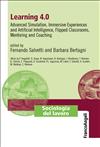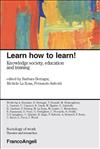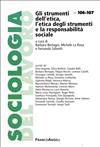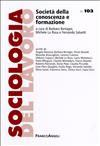Self-empowerment: how to survive your job In our society development became one of the keywords: development at all
costs, continuous growth, economic growth, professional development, purchasing power growth. In particular, concerning the most prevalent managers’ representations, the main keywords are action, pleasure, success, wellness, selfcontrol. It would though be suitable to add a little less noble word: anxiety
containment effort and annulment of any space for questions, as the everyday life searches for answers towards prompt needs and ponders about the meaning of questions that might bring staggering and anguish access. Managers are expected to actively build their role, shaping and adjusting it day after day on their own company needs and on market upheaval. This process occurs within company realities that not leave little or no space to personal choices, together with an agenda full of daily appointments often built by others,
with targets to reach not always understandable and sharable, during a series of organizational rituals that, even if useful in order to keep anxiety down, requiring a role-playing game sometimes heavy to manage.
There’s no space for the rise of dreams, affections and projects not aligned with the company needs and rhythm. There’s no time to protect the inner slowness, neither to feed ourselves with our fragility. We have to run to chase the promotion, the project success, the competitor company buyout, the purchase of the yacht, the benefit improvement. Meanwhile as time flows, we start to get old and, sometimes, a strong experience breaks into our life (birth, mourning, break up, love) and opens a reflection glimmer letting us notice how much we become stranger to ourselves, until we know/recognize ourselves no more.
Success accomplished at this level becomes a weird dimension in which the professional growth doesn’t match with a personal development but often in top managers’ stories we find the feeling or the awareness about a life lived but not chosen, lead with the automatic pilot, without a real space for choices, captured by an ascending career vortex toward which they can’t say no. Inside this logic a self-empowerment is frequently required and really often the consultant acts inside the same logic, proposing his action and answering the request. Too often the acting logics follow the same development at all cost logic spreading in almost every sector of our society. When the adviser agrees to this request without opening a space to analyze the question, but simply working on the given target in order to supply the comforting answer, he acts inside the same weird and directive logic leading to the prevalence of the role on the person. Working through an effective empowerment perspective means working together with the person in the role: improving his self-awareness, promoting a reflection on targets and values, ensuring an elaboration space for emotions and experiences. The aim is to bring into question the answers taken for granted, trying to
look from a different perspective what we do, what we are, what we say. We must help the person to focus on himself, rediscovering and bringing to light his values; leaving him to gain a better awareness over his role inside the negative and positive events of his life; revaluating the priorities; planning the needed
steps to reach his own objectives; pondering on his experience, emotion and conduct in order to revise his own behavioral modalities; finding space through the comparison in order to comprehend the behavioral schemes inside which he’s used to work.






